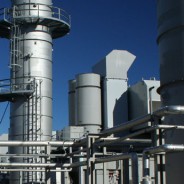Stranded Wet / Liquids Rich Gas from Shale Gas

Gas production from the shale gas revolution has not only added gas production, but petroleum liquids. This is seen in fields from Eagleford, Marcellus, to Utica. This added benefit has skewed the economics of natural gas production. Certainly these liquid rich plays have impacted the recent natural gas price capitulation. Producers are almost ignoring the natural gas price and just focusing on the liquid value-add as the petroleum markets maintain their strength.
However all is not well for the producers. The existing infrastructure in the Midwest is not design for all these liquids. The bulk of US refinery continues to be in the Gulf Coast. There are several projects underway and/or proposed to alleviate the pressure from stranded liquids in the region.
There is an ethane pipeline being built from Markwest Hydrocarbons Houston, Pa processing plant (just southwest of Pittsburgh) to Sarnia, Ontario to feed ethylene crackers owned by Imperial and Nova. Enterprise Products and Chesapeake recently announced an ethane pipeline that will take Marcellus and Utica ethane production to the Mont Belvieu, TX area and U.S. Gulf Coast ethylene crackers. El Paso is also evaluating converting the Texas Eastern natural gas transmission pipeline to an “ethane gas” pipeline that would move Marcellus and Utica ethane to North Louisiana in a gaseous form (can’t move as liquid because maximum pressure of the TE p/l is 750 psig), where they would build a cryo plant to convert the ethane back to a liquid, and a new pipeline that would transport the liquid ethane from the cryo plant to Dow and Westlake’s ethylene crackers in South Louisiana.
The final ethane takeaway solution is called “Mariner East” and is a joint project of Markwest Hydrocarbons and Sunoco that would take ethane by pipeline to Philadelphia, then load it on some old converted LNG vessels and ship it to the U.S. Gulf Coast for ethylene cracker consumption.
If you are participating in this area the first thing you need to do is evaluate the regional refineries. I could help you make a list of all the refineries, gather info on the current type of crudes they’re equipped to handle, call common carriers to get freight rates, calculate the value of the crude/condensate, etc. If your production is going to be significant, I can evaluate the various projects listed above for project viability and impact. I can also evaluate the worth of pursuing “if and where” a storage and barge terminal constructed on a river to transport to refiners that can be accessed by water.


0 Comments
Trackbacks/Pingbacks